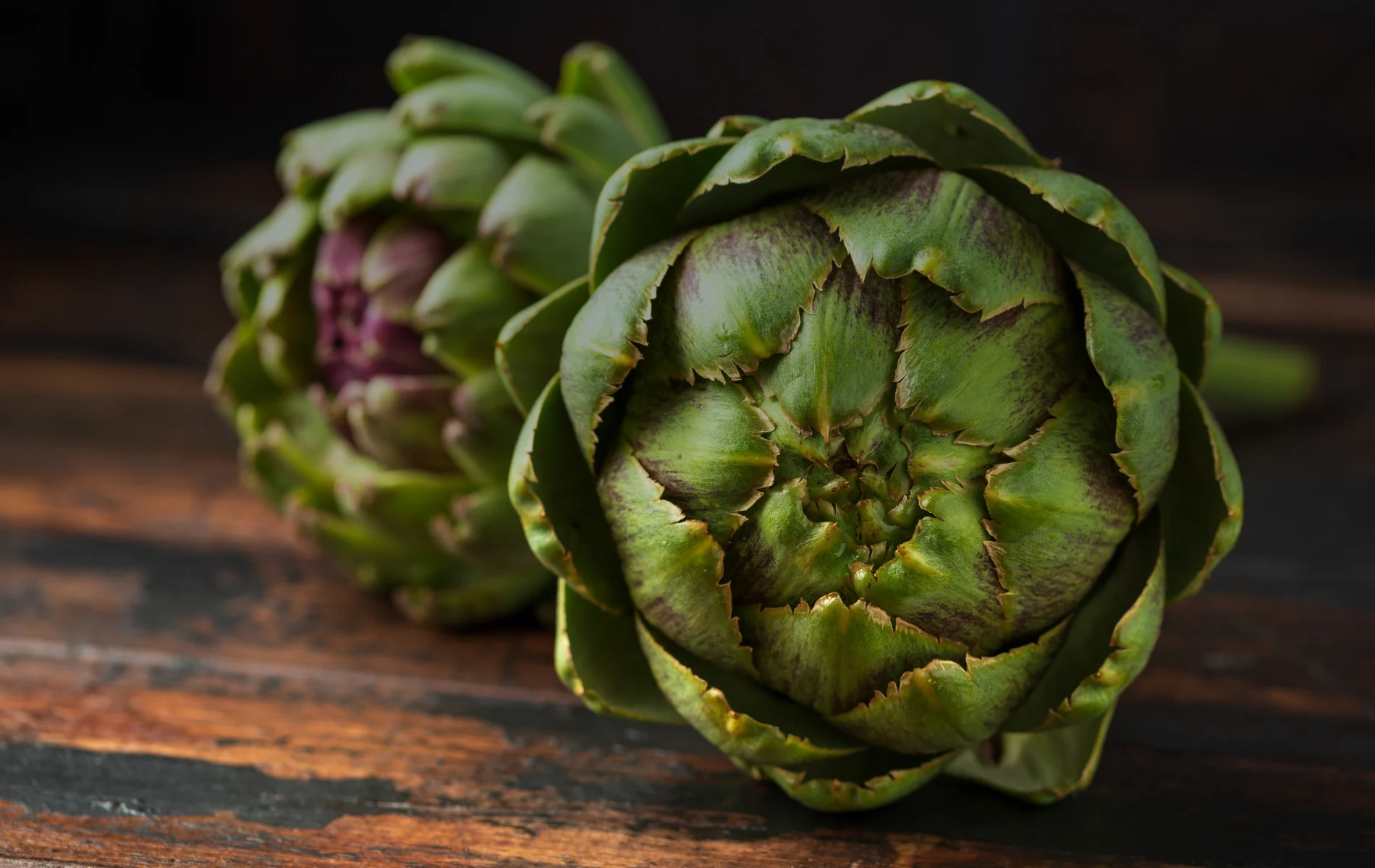
Artichoke Nutrition
ANTI-INFLAMMATORY
Irritable bowel syndrome (IBS) is classified by low grade chronic intestinal inflammation which can elicit an autoimmune response and result in digestive disruption. Artichokes have long been used as a digestive aid to reduce inflammation and therefore symptoms of IBS, including bloating, abdominal pain and cramps, as well as reducing both diarrhea and constipation through normalization of GI mobility.3
Extracts from artichoke leaves have also been used to reduce IBS symptoms and evaluated in at least two clinical studies.4 5 Both trials reported significant improvements in IBS symptoms, specifically in normalizing GI mobility and reducing bloating as well as relieving distension, abdominal pain and cramps.6
ANTI-AGING
Oxidative stress occurs due to a build up of free radicals in the body that are products of environmental toxins, poor diet and lifestyle choices, and chronic stress. Oxidative stress is related to several chronic diseases as well as compounding aging7. Free radicals are combated in the body by antioxidants.
Artichokes rank number one over all vegetables in terms of antioxidant count, according to research conducted by the US Department of Agriculture8.
A recent study testing polyphenols in artichokes found them to be potential anti-inflammatory agents by protecting the lymphatic vessels from oxidative damage as well as improving the expression of genes involved in anti-aging processes9.

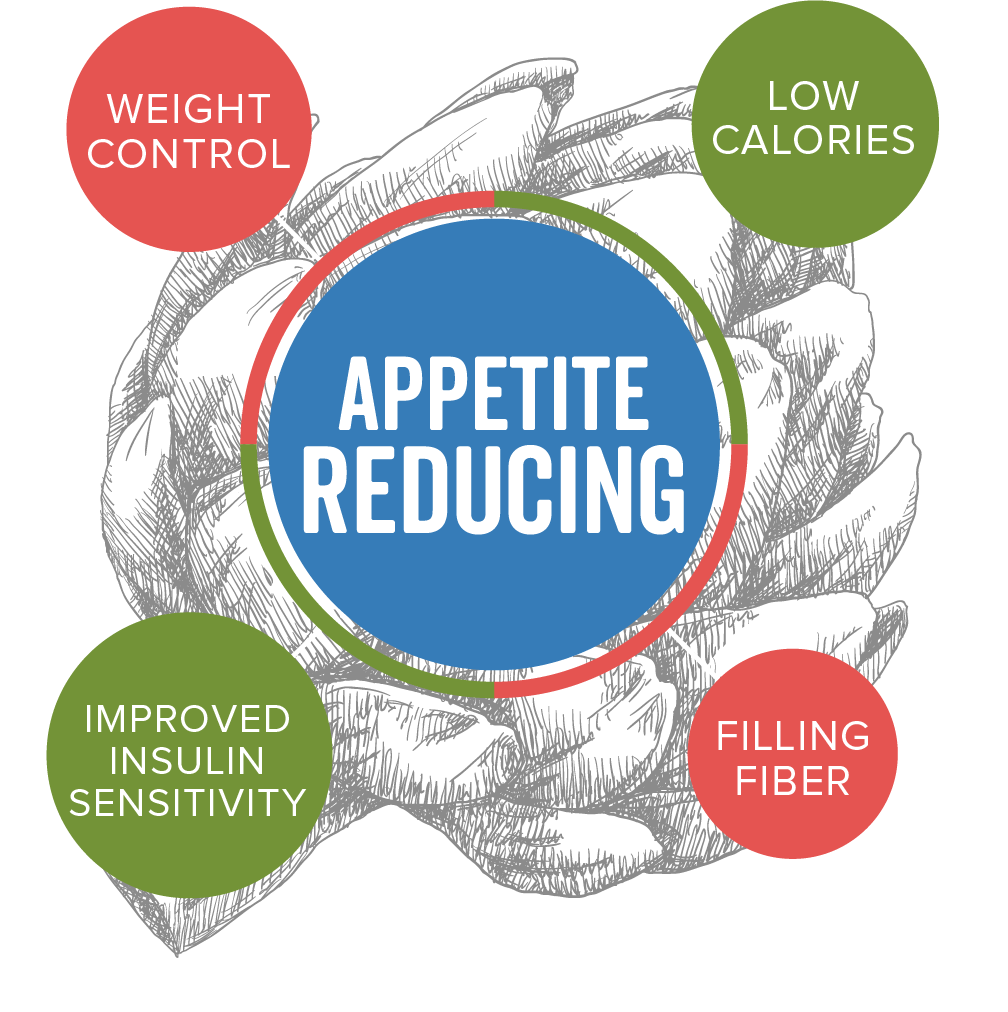
APPETITE REDUCING
People who incorporate more fiber into their meals generally report feeling more satiated and eat less. Prebiotic fiber like inulin, which is found in artichokes, appear to have additional benefits in terms of healthier body weight.
Researchers found that daily prebiotic consumption reduces appetite, lowers body weight and/or fat mass, and improves glucose tolerance.10
SLEEP PROMOTING
According to the American Academy of Sleep Medicine, about 30% of adults have symptoms of Insomnia, with 35% sleeping less than 7 hours per night11 12. Repeatedly getting less than 7 hours of sleep per night is linked to increased health risks such as obesity, heart disease, stroke, depression, and diabetes13.
A double-blind placebo controlled clinical trial found that supplementation of magnesium helped improve subjective measures of insomnia, sleep efficiency, and sleep time as well as early morning awakening in elderly people14.
Just one medium artichoke contains 77 mg of magnesium, almost 20% of the recommended daily intake15.
BLOOD SUGAR BALANCING
Often referred to as “good bacteria”, probiotics are similar to the bacteria found naturally in the body; prebiotics such as the inulin in artichokes stimulate the growth and health of these probiotic “good bacteria.”
In a recent review study, researchers concluded that probiotics (such as yogurt) can help reduce inflammation, increase insulin sensitivity and reduce autoimmune response16.
Specifically, in a double-blinded clinical study, people with type 2 diabetes experienced reduced fasting glucose and HBA1c levels after consuming one yogurt daily for six weeks17.
Scientists believe that healthy gut bacteria may play a role in reducing the risk of insulin resistance, which leads to type 2 diabetes18.
FATIGUE FIGHTING
Millions of Americans suffer from chronic fatigue syndrome19. Cornell researchers found that people with chronic fatigue syndrome had less diversity or different type of bacteria compared to those without it20. Poor gut flora has been linked to decreased nutrient absorption and therefore less efficient energy production.
Since artichokes are a good source of pre- and pro-biotics, they can help combat fatigue and promote increased energy for those who regularly consume them.
SPECIAL DIET FRIENDLY
Because artichokes are gluten and grain free, dairy free, nut and nightshade free, and low in carbohydrates and fat, they fit into any diet and lifestyle. Whether you prefer paleo, vegetarian, vegan, Whole30 and/or keto, artichokes can be a welcome part of your diet.
References
- International Scientific Association for Probiotics and Prebiotics (2019). Infographics. Retrieved from: https://isappscience.org/for-consumers/infographics/ ↩︎
- Kolida S, Givbon GR. Prebiotic capacity of inulin-type fructans. J Nutrition 2007:137(11) 2503S2506S ↩︎
- World J Gastroenterol 2014 Jan 14, 20(2):346-362 doi: ↩︎
- Aliment Pharmacol The. 2003 Dec: 18(11-12): 1099-105 Efficacy of artichoke leaf extract I the treatment of patients with functional dyspepsia: a six-week placebo-controlled, double-blind, multicenter trial Hollmann G1, Adam B, Haag S, Collet W, Grunewald E, Windeck T.
The Artichoke Leaf Extract preparation tested was significantly better than the placebo, I alleviating and improving the disease-specific quality of life in patients with functional dyspepsia. ↩︎ - J Altern Complement Med. 2004 Aug, 10(4):667-9. Artichoke leaf extract reduces symptoms of irritable bowel syndrome and improves quality of life in otherwise healthy volunteers suffering from concomitant dyspepsia: a subset analysis. Bund R1, Walker AF, Middleton RW, Marakis G, Booth JC. ↩︎
- World K Gastroenterol. 2014 Jan 14; 20(2): 346 – 362. doi: 10.3748/wjg.v20.i2.346 Epub Complementary and alternative medicines in irritable bowel syndrome: An integrative view Oliver Grundmann and Saunjoo L Yoon. ↩︎
- Liguori, I., Russo, G., Curcio, F., Bulli, G., Aran, L., Della-Morte, D., … Abete, P. (2018). Oxidative stress, aging, and diseases. Clinical interventions in aging, 13, 757–772. doi:10.2147/CIA.S158513 ↩︎
- J Agric Food Chem. 2006 Dec 27;54(26):9966-77. ↩︎
- D’Antuono, I. et al. (2018). Artichoke Polyphenols Produce Skin Anti-Age Effects by Improving Endothelial Cell Integrity and Functionality. Molecules (Basel, Switzerland), 23(11), 2729. doi:10.3390/molecules23112729 ↩︎
- Binns N. International Life Sciences Institute. Probiotics, Prebiotics and the Gut Microbiota. http://www.ilsi.org/Europe/Publications/Prebiotics-Probiotics.pdf. Accessed September 18, 2015. Published 2013. ↩︎
- American Academy of Sleep Medicine (2008). Insomnia. Retrieved from: https://aasm.org/resources/factsheets/insomnia.pdf ↩︎
- Centers for Disease Control and Prevention (2019). Short Sleep Duration Among US Adults. Retrieved from: https://www.cdc.gov/sleep/data_statistics.html ↩︎
- Centers for Disease Control and Prevention (2019). Short Sleep Duration Among US Adults. Retrieved from: https://www.cdc.gov/sleep/data_statistics.html ↩︎
- Abbasi, B., Kimiagar, M., Sadeghniiat, K., Shirazi, M. M., Hedayati, M., & Rashidkhani, B. (2012). The effect of magnesium supplementation on primary insomnia in elderly: A double-blind placebo-controlled clinical trial. Journal of research in medical sciences : the official journal of Isfahan University of Medical Sciences, 17(12), 1161–1169 ↩︎
- National Institute of Health (2019). Magnesium Fact Sheet for Consumers. Retrieved from: https://ods.od.nih.gov/factsheets/Magnesium-Consumer/ ↩︎
- Gomes AC, et al. Gut microbiota, probiotics and diabetes. Nutrition Journal. 2014:13:60. ↩︎
- Gomes AC, et al. Gut microbiota, probiotics and diabetes. Nutrition Journal. 2014:13:60. ↩︎
- Brown-Riggs, C. The Gut Microbiota. Today’s Dietitian. November 2014:22-25. ↩︎
- Web MD (2016). Gut Bacteria May Hold Clues to Chronic Fatigue. Retrieved from https://www.webmd.com/chronic-fatigue-syndrome/news/20160715/gut-bacteria-may-hold-clues-to-chronic-fatigue-syndrome#2 ↩︎
- Web MD (2016). Gut Bacteria May Hold Clues to Chronic Fatigue. Retrieved from https://www.webmd.com/chronic-fatigue-syndrome/news/20160715/gut-bacteria-may-hold-clues-to-chronic-fatigue-syndrome#2 ↩︎



